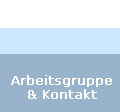|
The working group „Runoff generation and process-oriented
modeling” at the Institute of Hydrology,
Faculty of Forestry and Environmental Sciences, University
of Freiburg, Germany, is led by
PD Dr. Stefan Uhlenbrook in co-operation with the head of
the institute Prof.
Dr. Chris Leibundgut.
A variable number of people (between about 5 and 12) work
in this group.
Our mission is to improve the general understanding of runoff
generation processes at various
temporal and spatial scales and across diverse climates and
hydrological settings. In addition, we
work with different hydrological models to enhance our ability
to model adequately hydrological
processes. The central goal is the combination of latest experimental
data with new and innovative
simulations models to improve the predictions of hydrological
variables at gauged and ungauged
sites. This implies the reduction of the prediction uncertainty
by incorporating an improved
understanding of the functioning of hydrological processes.
To identify runoff generation processes (flow pathways, source
areas and residence times) we
work with different experimental techniques, e.g. classical
hydrometric techniques, tracer methods,
geoelectrical techniques etc.. The use of different tracer
techniques by applying environmental
isotopes, hydrochemistry and artificial tracers plays a central
role. Different statistical techniques of
data analysis are applied to detect major controls of hydrological
systems. For the process-based
modeling we developed and improve continuously the hydrological
catchment model TACD
(tracer aided catchment model, distributed), which aims at
predicting hydrological processes at the
landscape scale (hydrological meso-scale: 101-103 km2).
|







